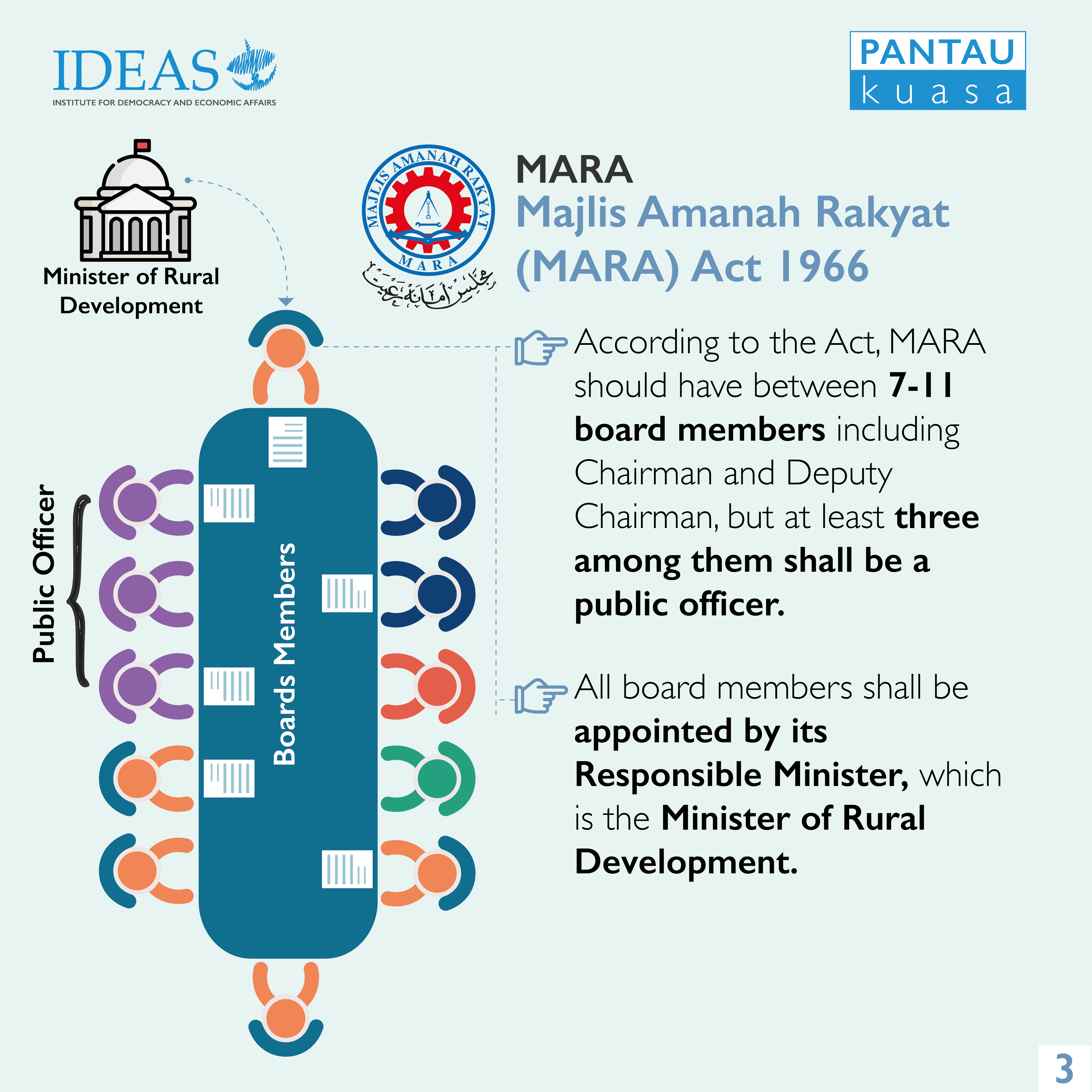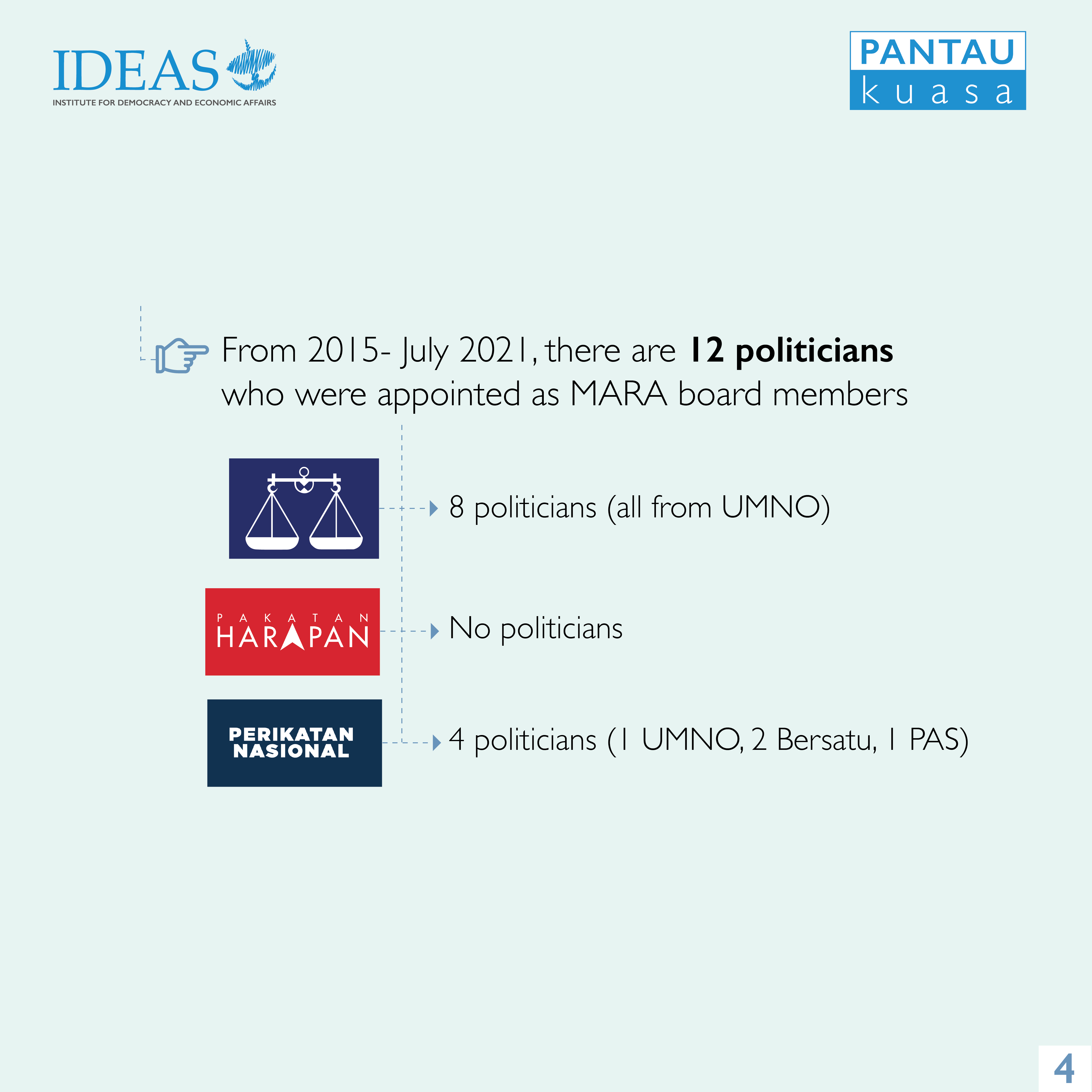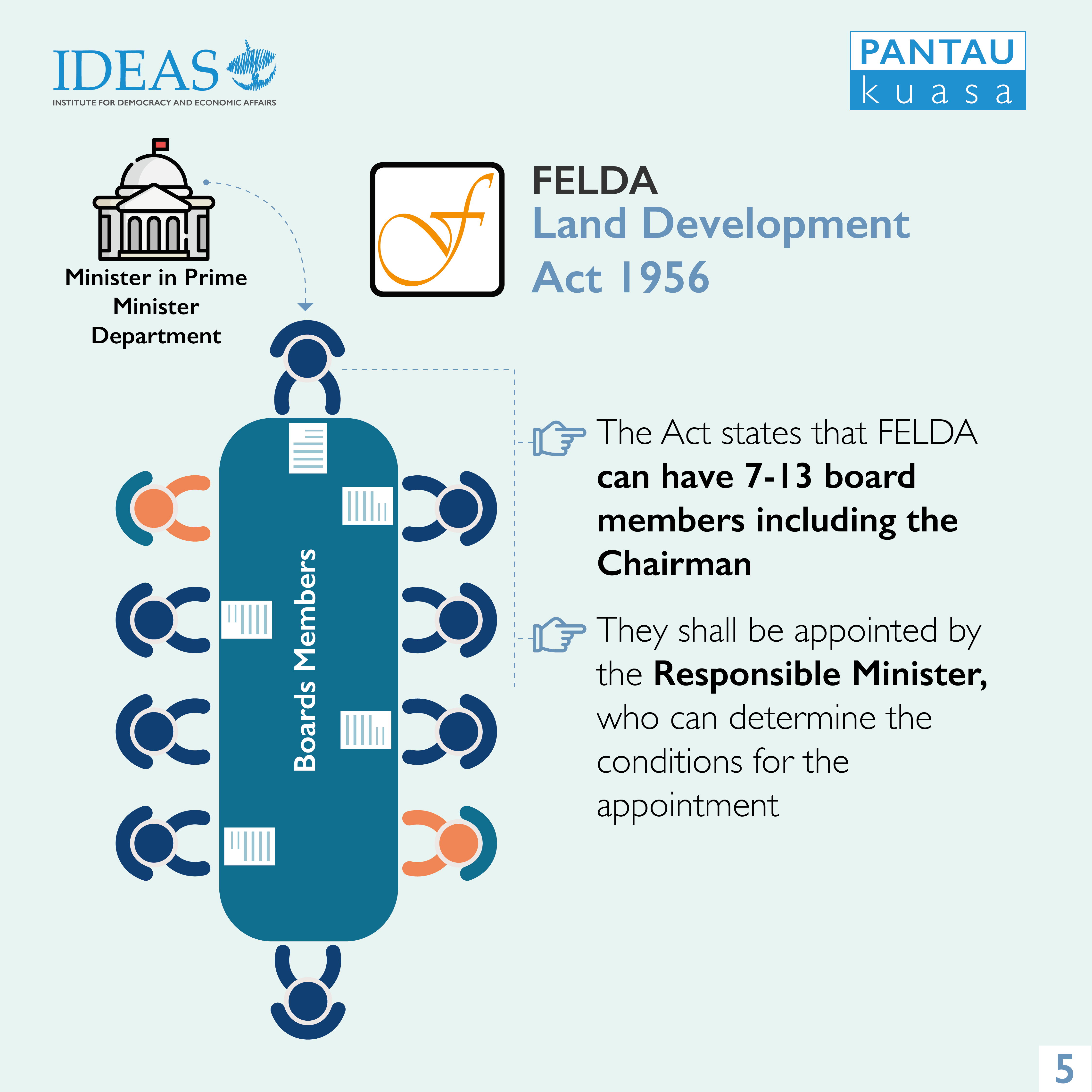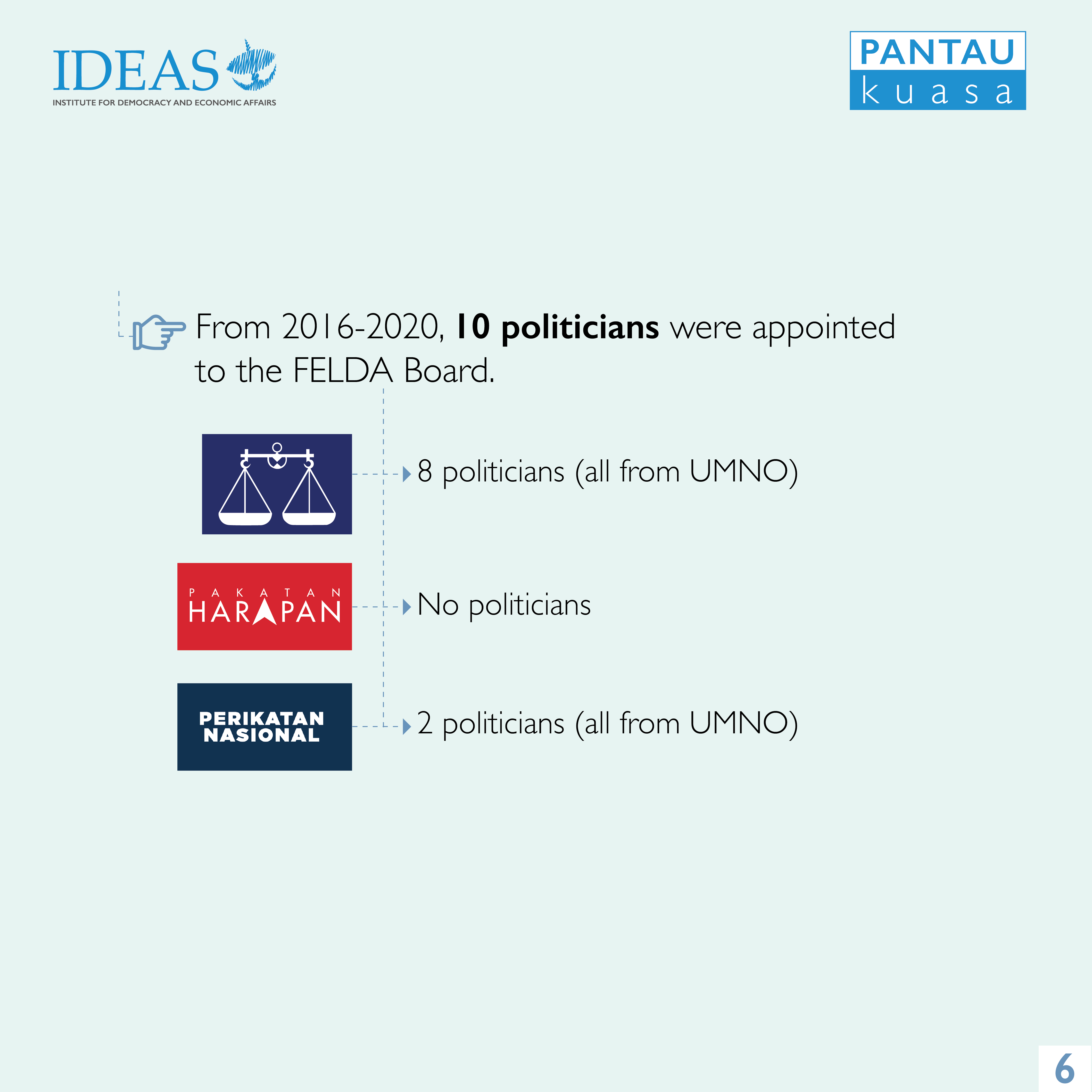How are Politicians Appointed PPOINTED Into Malaysia’s Federal Statutory Bodies (FSBs)? Part 2


Part 1 looks into the incorporation act of Federal Statutory Bodies (FSBs) and how they regulate board member appointments. The act outlines the person responsible to appoint (usually the Agong, Prime Minister or Responsible Minister), additional criteria a board member must have and the composition of the board.
This infographic provides examples of how politicians were appointed to the boards of MARA and FELDA.
Majlis Amanah Rakyat (MARA)
MARA was set up in 1966 to develop Malay and later Bumiputera entrepreneurs. The MARA Act states that the Minister shall appoint the members of the “Majlis”. MARA has been under the purview of the Ministry of Rural Development. Thus a Minister from UMNO had always been overseeing MARA until PH took power in 2018 when Bersatu replaced UMNO as the dominant Malay party in the government.

According to MARA Act, the Minister shall appoint:
- a Chairman;
- a Deputy Chairman; and
- not less than five nor more than nine other members of whom not less than three shall be public officers.
The Act does not outline any specific requirements for the board member appointments.
“The Chairman shall be appointed upon such terms and conditions as the Minister may determine.”
Thus, besides the three board members that must be from among public officers, the Chairman, Deputy Chairman and two to six other board members can be appointed from among individuals that the Minister may determine, including politicians.

It was notable that Hasnita Hashim was made the first non-politician to head MARA under PH. Then Azizah Mohd Dun, a Bersatu MP replaced her as MARA’s Chairman under PN.
Federal Land Development Authority (FELDA)
FELDA was set up in 1956 to resettle poor Malay families who were previously in agriculture and help them to become modern smallholders, initially focused on rubber but has now changed to oil palm.
The FELDA Act states that the Minister shall appoint the members of the board or known as “Authority”. FELDA is under the purview of the Prime Minister Department. It was placed under the Ministry of Economic Affairs under PH, and now back under the Prime Minister Department.

According to FELDA Act, the Authority shall consist of:
- a Chairman, who shall be appointed by the Minister; and
- not more than twelve or less than six members, who shall be appointed by the Minister and shall, subject to this Act, hold office for such term not exceeding three years and subject to such conditions as the Minister shall determine.
Thus, the Minister can appoint the Chairman and six to twelve board members from among individuals he shall see fit, including politicians.

The Chairman of FELDA under BN Najib’s administration and PN are UMNO politicians. Under PH, Megat Zaharuddin, a non-politician was appointed as the chairman.
The Acts of MARA and FELDA permits the responsible Ministers and Board members to pursue both commercial and social undertakings in order to achieve their socio-economic objectives.
The wide interpretation of MARA’s and FELDA’s mandate might result in a disproportionate emphasis on profitable investments over social programmes that help raise the standard of living, but are less profitable.
The quality and integrity of the Board’s stewardship have also been compromised by:
- individuals seeking personal gains
- the Board’s collective failure to call out malpractices in a timely manner.
MARA property scandal, where Australian university housing and apartments were "sold" to MARA by MARA Inc. officers and their external partners at a price that's double its market value.
This Insight was adapted from our research paper that looked into MARA and FELDA. Read the papers here:


